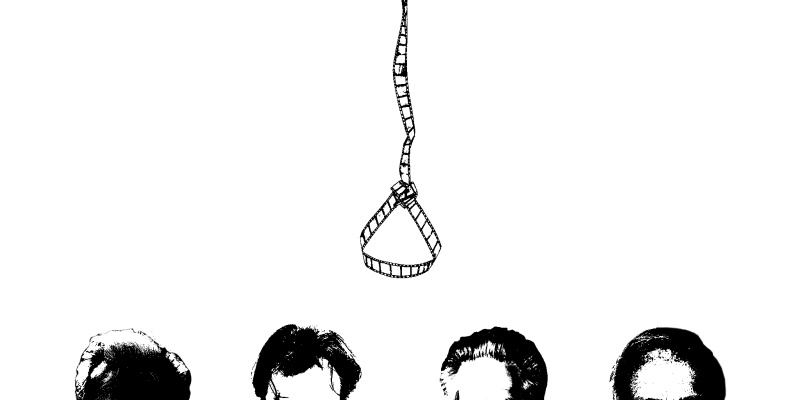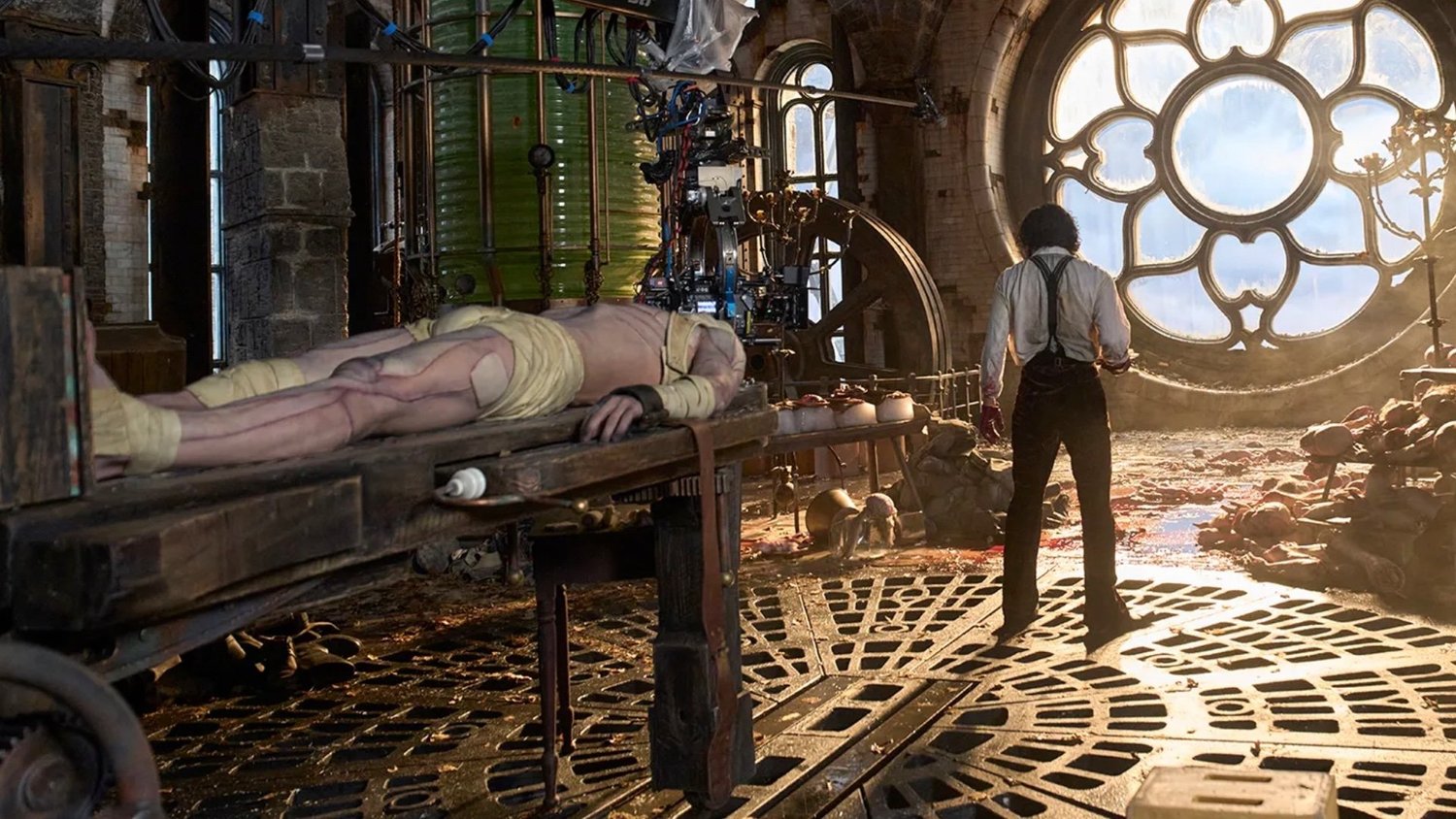
Movies Are Dead – Insider Perspectives
Mar 3, 2023
“They don’t make ‘em like they used to.” It’s not a sentiment unfamiliar to the world of film, especially these days. Every few months some esteemed filmmaker bemoans the state of the industry, typically targeting the Marvel films in doing so, and is swarmed by conniving hoards of fanboys and Twitter accounts who upon further inspection don’t seem to have much skin in the game. But in what sense do these talking heads mean cinema is dead? Theatrical exhibition? Films for adults? Artistry? Who are the naysayers, and how long have they been saying nay?
Well, people have been drudging up the concept of the slippery slope of quality for a long time (think of the character of Norma Desmond proclaiming: “It’s the pictures that got small”), but as early as 1961, Italian neorealist director Roberto Rossellini proclaimed that cinema was dead, and anyone with sense ought to jump ship to TV before they were left behind. It turned out to not be quite so dire, though we’re still on the long track from the audience’s revaluation of how and where they prefer to be ‘entertained’.
As far back as 1990, being interviewed for a special episode of At the Movies, colleagues and new Hollywood pioneers George Lucas, Steven Spielberg and Martin Scorsese warned of the foreboding innovations in home media and the dwindling likelihood of encountering a truly exceptional venue for theatrical exhibition. Even then, Spielberg, who would go on to rail against the domination of streaming media, espoused the irreplaceable nature of the theatrical experience; its sense of community and transportation. Lucas foresaw the growing disinterest in non-blockbuster releases outside of the comfort of the home.
More recently, Scorsese seems to believe that the deafening mediocrity of the modern blockbuster echoes the death throes of film itself. “Cinema is gone,” Marty pronounced in 2016. “The cinema I grew up with and that I’m making, it’s gone.” This connects with Scorsese’s belief that the Marvel releases represent a new sort of cinema, a “rollercoaster” meant for audience participation on the level of a theme park ride. Thinking back to screenings of Spider-Man: No Way Home, which, make no mistake, is a quality film, it’s hard to argue against this point. The constant chorus of cheers, screams, ooo’s, aaah’s, laughs, gasps, claps and camera flashes hardly leave room for you to engage with the film beyond the level of picking up a cue to react.
Quentin Tarantino isn’t quite as pessimistic (“He’s an old man, you think Scorsese’s going to be into Antman vs The Wasp (sic)”), though for a film fanatic with a viewing appetite as avaricious as his, the lack of recommendations this side of 2015 seems to send a clear message. Tarantino recently declared that we’re in the midst of a major nadir in American film, equivalent to the weak-streak of the 1950s, a mediocrity so pervasive that two great films since 2020 managed to outright shock him. They are: Steven Spielberg’s West Side Story, and Top Gun: Maverick. Both provided the sort of cinematic spectacle he’d almost thought he would never see again. Tarantino will watch and exalt damn near *anything*. We’re in a bad way when he has nothing to say about our movies, bar two.
“Cinema is already dead”, according to David Cronenberg, who’s never been one for the conventional nor even the unexceptional. “However, filmmaking is not dead. Image-making is not dead. Cinema becomes something else. It is no longer the cathedral that you go to where you commune with many other people.” This is a pragmatic view of things, and that talk of innovation and the life-cycle of cinema seems to have been co-signed by Damian Chazelle, an avid consumer of historical and experimental film, who suggested the life-death-rebirth nature of film and its consumption across history through the ending of his most recent movie; Babylon. It’s worth noting, however, that Babylon itself doesn’t exactly look forward, so much as acknowledge the inevitability of change in the industry, and the ways lost to the march of ‘progress’ and the shifting demands of the audience.
James Cameron, who knows a thing or two about the demands of the audience (and whose work twice is the subject of homage in Babylon), doesn’t think cinema is dead, and indeed doesn’t even think that 3D is dead. “3D appears to most people to sort of be ‘over.’ But it’s really not over. It’s just been accepted. It’s just now a part of your choices when you go to the theatre to see a big blockbuster movie… I liken it to color.” As if black and white isn’t thoroughly uncommercial, and only succeeds when marketed to the converted (‘movie people’).
Renowned producer James Schamus seems fine with the fact that movies are dead. “Being dead is not the same thing as not existing — many things exist that are dead. Indeed, I would argue that many of the greatest things that exist are dead and this is not necessarily a bad thing.”
Jean Luc Godard died last year. Another link in the chain to cinema’s past lost. He once remarked; “Every film is the result of the society that produced it. That’s why the American cinema is so bad now. It reflects an unhealthy society.” That was some time ago, but we ought to wonder what the overwhelming majority of films today say about global culture.
Are we tired of introspection? Are the demands of art too onerous? Why do we gravitate to simple, and comfortably cyclical narratives and reserve most of our disconcerting material for the safety of home viewing? Why do audiences betray a disinterest in paying for substantive media, but default to inflating the opening weekend of derisory entertainment? What does that say about us? If the movies are mollifying, inoffensive, unmoving and degenerative… what’s happening to us?
Publisher: Source link
TV Shows That Got Canceled In 2024
TV Shows That Got Canceled In 2024 Which 2024 canceled TV show will you miss the most? Share your pick in the comments! Disclaimer: This story is auto-aggregated by a computer program and has not been created or edited by…
Dec 22, 2024
How The Talk Emotionally Ended After 15 Years
The Talk has officially said "Goodbye." After 15 seasons and 2,993 episodes, the CBS daytime show came to an end on Dec. 20 with a heartfelt farewell from hosts Akbar Gbajabiamila, Amanda Kloots, Natalie Morales, Jerry O'Connell and Sheryl Underwood. The episode began with a standing ovation for the…
Dec 22, 2024
Jennifer Lopez Asked About Turning 60, Age
Jennifer Lopez Asked About Turning 60, Age Never ask a woman her age, a man his salary, or Jennifer Lopez how she feels about turning 60. On Sunday, the actor was interviewed by Variety amid the release of her new…
Dec 21, 2024
Lala Kent Shares Text With Ally Lewber After James Kennedy’s Arrest
The BCU (Bravo Cinematic Universe) was shaken on March 3, 2023, when it was confirmed that Tom and Ariana had ended their nine-year relationship amid the revelation that he'd had a seven-month affair with Raquel. "I made mistakes, I was…
Dec 21, 2024











